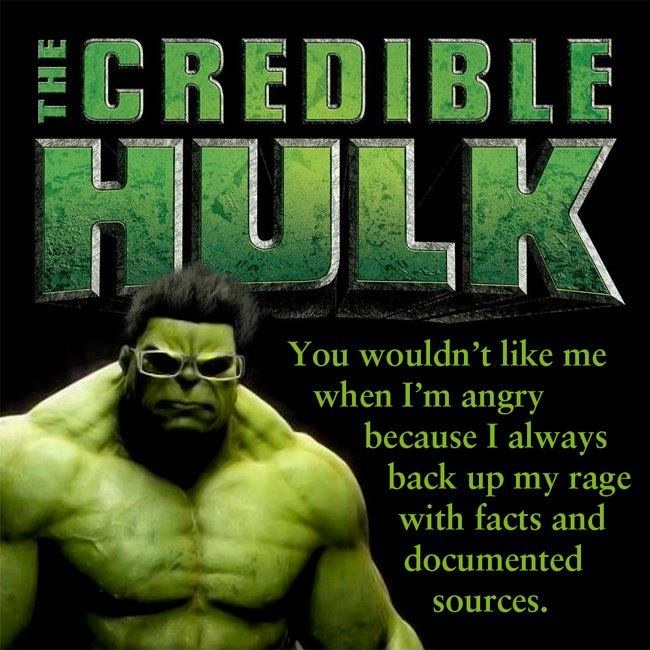Accuracy Motivation and Judgments of Truth Claims
Here's a question that stems from my own work with students and research: How might playful approaches to the teaching of argument foster this type of motivation? Or, how might a Credible Hulk badge and playlist to support the development of this type of motivation? 